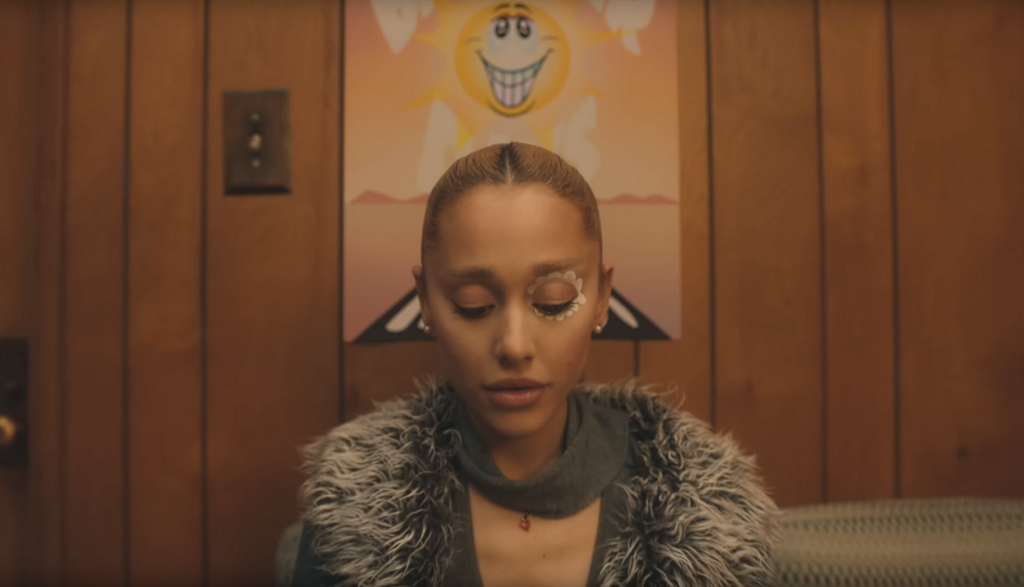
If you’ve ever been through a breakup, you’ll probably relate to Ariana Grande’s song, “We Can’t Be Friends.”
The second single from Grande’s album, Eternal Sunshine, “We Can’t Be Friends” encapsulates the heartache of an ended relationship. In the song, Grande declares to an unnamed ex that although “we can’t be friends,” she would “like to just pretend” and “wait until you like me again.”
A music video, which is based on the premise of the movie Eternal Sunshine of the Spotless Mind, accompanies the song and adds to its meaning.
In the video, Grande plays a character named Peaches. Peaches goes to a medical clinic, asking them to perform a procedure that would erase her ex from her memory. Although she is seemingly content with her decision, the song’s ending repeats the phrase, “I’ll wait for your love.”
Music is filled with bad advice about breakups. Country songs often suggest drowning your sorrows in alcohol. Oliva Rodrigo’s recent single, “Bad Idea,” suggests you give into temptation and sleep with your ex.
In contrast, Grande’s “We Can’t Be Friends” doesn’t offer any explicit advice; however, it does present a relatable example of someone processing a breakup. The song demonstrates that it’s normal to desire separation from a previous partner while also missing his or her affection and company.
Unfortunately, Grande’s relatable representation of a breakup ultimately offers little hope. The song ends with repetition of the phrase, “I’ll wait for your love,” leaving listeners with her feelings of insatiable longing for a relationship that did not work out.
This song also includes some postmodern themes. For example, she states, “Me and my truth, we sit in silence/Baby girl, it’s just me and you.” Grande’s message here doesn’t seem agenda-filled; however, she does implicitly suggest a worldview based on subjective truth and personal experience.
The music video doesn’t add anything terribly explicit, but there are a few moments to consider. As mentioned before, the premise of the video involves a woman undergoing an operation that promises to erase all memories of her ex. Obviously, this is not a realistic or healthy way to process a breakup. Additionally, a scene in the video involves a couple lying in the same bed together, and the man is seen without a shirt.
Compared to many other relationship-related songs, Ariana Grande’s breakup commentary could be seen as being more positive—which is an indicting comment on the overall state of this medium. Although she avoids offering blatantly negative advice, her conclusion is an ambivalent acceptance of her dissatisfaction.
American author Flannery O’Connor delineates the problem with such conclusions by stating, “At its best our age is an age of searchers and discoverers, and at its worst, an age that has domesticated despair and learned to live with it happily.”
Unfortunately, O’Connor’s “despair domesticators” dominate this postmodern generation. And based on “We Can’t Be Friends,” Ariana Grande seems to be one of them.

